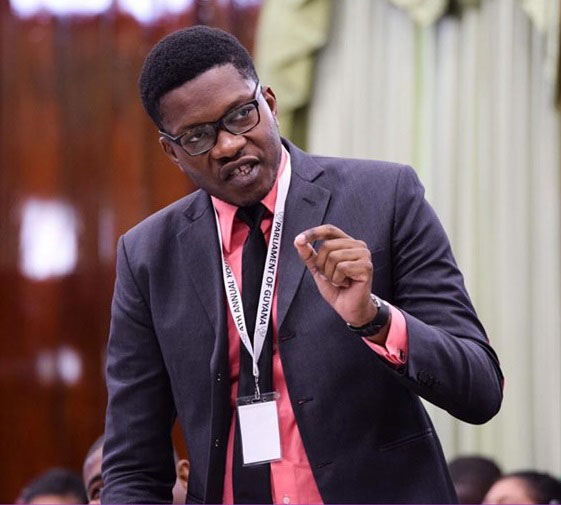The Citizenship Initiative (TCI), one of Guyana’s newest political parties, is calling on the Guyana Elections Commission (GECOM) to be forthcoming with the public on the reasons behind its decision making.
“One of our guiding principles is transparency and with transparency it is important that you be communicative and that you be open about your processes and that you be open about the reason why you have made the decisions you have made,” TCI member Alfonso De Armas told Sunday Stabroek during an interview last week.
He stressed that while the party at this time doesn’t have a position on the actual policies announced by the commission, it does believe that it is important for GECOM to be more open, more communicative and more transparent.
Most recently, GECOM commissioners have announced that more than 25,000 persons could be excluded from the 2020 Official List of Electors (OLE) if they do not uplift their national identification cards, some of which have been sitting uncollected since 2008.
Following last Tuesday’s statutory meeting, it was revealed that the names will be published in the newspapers and persons will be given 21 days within which to collect the Cards. Failure to respond to that notice will see these persons prevented from voting though their names will remain on the National Register of Registrants.
De Armas and Yonnick David, another member of TCI, refused to endorse or condemn the move, while stressing that none in their grouping are lawyers.
The People’s National Congress Reform (PNCR), the largest party in the governing APNU+AFC coalition, has endorsed GECOM’s decision, while the Opposition People’s Progressive Party/ Civic (PPP/C) has condemned the policy as illegal.
“It is important that no one is disenfranchised but we can’t join the political noise surrounding GECOM. We need to be little bit more sober. None of us is a lawyer,” De Armas stressed.
He added that if even one person is to be disenfranchised by the move then it cannot be supported but declined to criticise the policy.
David in turn noted that unfortunately there has been too much interference from political parties at GECOM in the recent past.
“Going forward with them having a solid chair, making decisions independent of interference, we hope they will continue preparations to ensure credible elections,” he explained.
De Armas also expressed his personal gratitude for the recent house-to-house registration process without which he might not have been registered to vote. “I am happy that they came and did the house-to-house registration. My father is not mobile and my mother…well it was really good for my family. So I support that policy from a personal standpoint,” he noted.
The controversial house-to-house registration was truncated after the acting Chief Justice ruled that it could not be used to remove names from the National Register of Registrants unless those persons were disqualified under the National Registration Act.
Currently the transaction generated during that one month process are being publicly displayed along with the Preliminary List of Electors. Government-nominated Commissioner Charles Corbin has maintained that each house-to-house transaction is to be treated the same as transactions generated during Claims and Objections and therefore will be reflected in the Revised List of Electors (RLE).
“It will be as if each of those persons came in to be registered during the Claims and Objections period and the procedure is outlined,” he stressed.
David is encouraging all those eligible to register and exercise their right to vote but more than that in keeping with TCI’s primary position of citizen engagement he has urged persons to continue to work after elections.
“Come out and vote then after get into the culture of holding policymakers accountable. Ask questions, know what’s going on and if issues are likely to affect you let your voice be heard. We need more activity,” he stressed, while lamenting that too often citizens limited their participation in democracy to voting on election day.






